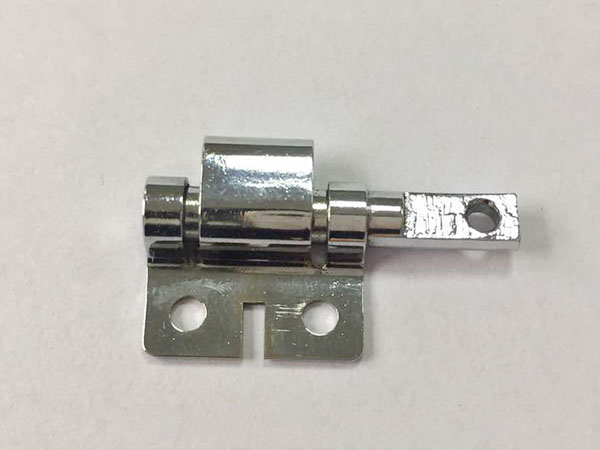Question: There are many types of stainless steel hinges. What key points should be noted when choosing and applying them?
Answer: Stainless steel hinges are key components that connect and support doors, Windows, and cabinets. Their selection is crucial to the overall lifespan and user experience of the product. Based on years of manufacturing experience, our company has sorted out the following core points for you:
Hinge types and applicable scenarios
Top and bottom hinge: It adopts an upper and lower mirror symmetrical design, with built-in rolling bearings to achieve silent opening and closing, and the maximum opening Angle can reach 180 degrees. It achieves three-dimensional fine-tuning through eccentric adjustment wheels, making it highly suitable for ecological doors, aluminum-framed glass doors and high-end cabinet doors that require concealed installation and pursue ultimate aesthetics.
Flag-shaped hinges (triple hinges) : The most distinctive feature of this type of hinge is that it can rotate 360 degrees in all directions. It consists of three hinge units and has excellent load-bearing performance. It is widely used in industrial equipment cabinet doors (such as high-voltage switch cabinets and explosion-proof boxes), medical sterilization equipment, and outdoor public facilities. Its stainless steel material (such as 304 or 316) can effectively resist corrosion from oil stains, chemical disinfectants and humid environments.
Conventional hinges (detachable, crown, etc.) : This is the most versatile type, with a wide range of size options, from 1 inch to 5 inches. When making a choice, the weight and thickness of the door leaf are decisive factors. Generally, for lighter doors and Windows, hinges with a thickness of 3mm can be chosen, while for heavier solid wood doors or metal doors, a thickness of 4mm or more is required, or the force can be distributed by increasing the number of hinges (such as from 2 to 3).

Core performance indicators: Material, load-bearing capacity and environmental adaptability
Material is fundamental: genuine 304 stainless steel or 316 stainless steel must be chosen. 304 is suitable for most household and ordinary commercial environments, while 316, due to the addition of molybdenum, has a stronger resistance to chloride corrosion and is more suitable for coastal areas or special environments such as medical and chemical industries.
Load-bearing capacity and structure: Due to its structural advantages, the three-joint flag type hinge can bear a door weight of over 50kg. The top and bottom hinges, through the design of limit shafts and fixed installation platforms, only bear vertical pressure, effectively avoiding deformation caused by lateral forces and extending their service life.
Environmental adaptability: Our company strictly controls the materials and craftsmanship of our products to ensure that the hinges can maintain a long-lasting smooth usage experience even in environments with large temperature differences, high humidity or the risk of chemical corrosion.
Professional installation suggestions
Correct installation is the guarantee for giving full play to the performance of hinges. The basic steps include: determining the number of hinges based on the door weight → precisely cutting grooves on the door leaf and door frame (the groove depth should be consistent with the thickness of the hinge plate) → Placing the hinges into the grooves and ensuring the surface is level → firmly fixing them with anti-rust screws → Finally conducting opening and closing tests and fine-tuning the gaps. For special types such as top and bottom hinges and flag hinges, it is recommended that they be installed and debugged by professionals to ensure the perfect realization of their functions.


 Enter mobile site
Enter mobile site
 Follow WeChat
Follow WeChat